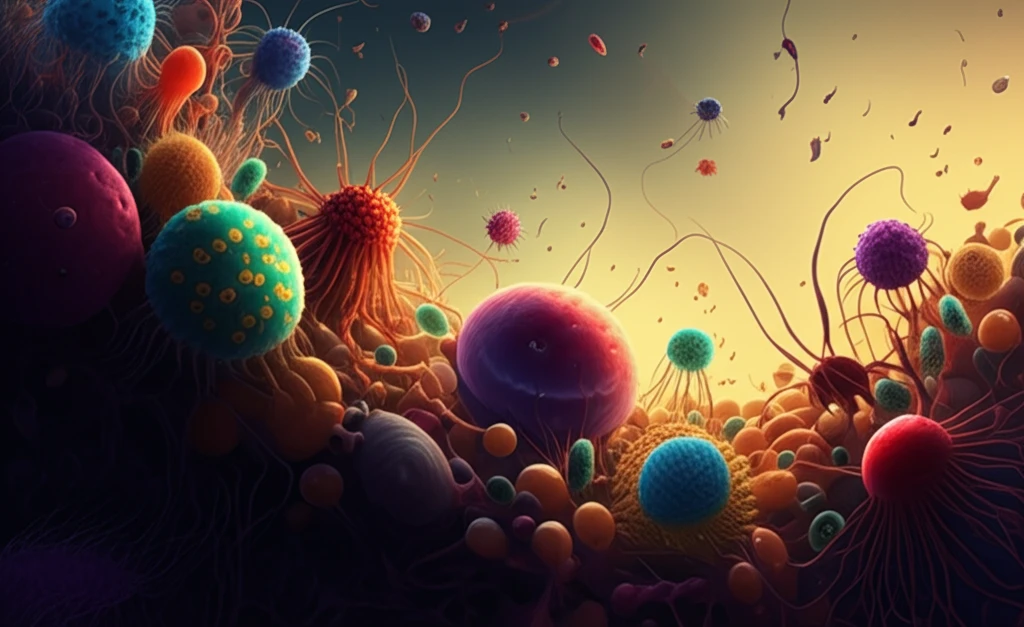
Unseen Dangers: How Microbes Shape Your Daily Life and Health
"Unlock the secrets of environmental microbiology and learn how these invisible organisms impact everything from your food to your well-being."
Microbes are everywhere. From the air we breathe to the food we eat, these tiny organisms play a monumental role in shaping our world. While some microbes are notorious for causing disease, the vast majority are essential for life as we know it. Understanding the complex interactions within microbial communities is key to maintaining health, ensuring food safety, and protecting our environment.
Environmental microbiology is the study of these microorganisms in their natural habitats. It explores their diversity, their functions, and their impact on the world around us. This field of study is increasingly important as we face new challenges related to climate change, antibiotic resistance, and food security.
In this article, we'll explore how environmental microbiology affects your daily life and health, providing insights into the unseen world of microbes and practical advice on how to navigate it.
The Invisible Architects of Our World

Microbes are the unsung heroes of our planet. They drive essential processes like nutrient cycling, decomposition, and even climate regulation. In our bodies, the microbiome—the community of microbes living in and on us—plays a vital role in digestion, immunity, and even mental health. When this microbial balance is disrupted, it can lead to various health issues.
- Food Safety: Proper handling and storage can minimize the risk of harmful microbial contamination.
- Gut Health: A balanced microbiome supports digestion and immunity.
- Environmental Sustainability: Microbes can help clean up pollutants and reduce waste.
Embracing the Microbial World
Understanding the role of microbes in our lives empowers us to make informed decisions that benefit our health and the environment. By practicing good hygiene, supporting a healthy microbiome, and promoting sustainable practices, we can harness the power of microbes for a healthier, more sustainable future. Embracing this unseen world can lead to a greater appreciation for the complexity and interconnectedness of life on Earth.
